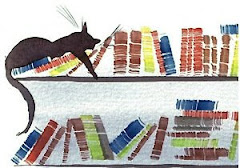 It has happened many times already, in Vietnam, in Iran, in Afghanistan. And it is happening once again in Iraq; the United States seems to have a tendency to finance its own future defeat.
It has happened many times already, in Vietnam, in Iran, in Afghanistan. And it is happening once again in Iraq; the United States seems to have a tendency to finance its own future defeat.The British daily newspaper The Guardian reports in an article Friday that a Sunni militia that has been hired by Washington to fight the insurgents in Iraq is threatening to go on strike because the US has fallen behind with the payments of the combatants' salaries.
Leaders of the Sahwa - or Awakening -, which counts 80,000 members, are demanding that their $10 a day wage is resumed. They are accusing Washington to send them off to fighting al Qaeda in the most dangerous areas of Iraq to then abandon them to their own destiny.
In a telephone survey conducted for Channel 4 News, The Guardian found that out of 49 Sahwa councils, four with more than 1,400 men have already quit, 38 are threatening to go on strike and two already have. "We know the Americans are using us to do their dirty work and kill off the resistance for them and then we get nothing for it," Abu Abdul-Aziz told the UK newspaper. He is the head of the council in infamous Abu Ghraib. "The Americans got what they wanted. We purged al-Qaeda for them and now people are saying why should we have any more deaths for the Americans. They have given us nothing."
The history of US involvement in foreign lands is fraught with mistakes and poor judgment.
In Iran, the CIA carried out its first successful regime-change operation in 1953, when it was able to overthrow the democratically elected government of Mohammed Mussadegh because the US felt threatened by its ideology and nationalist fervor. The CIA's covert intervention preserved the Shah's power and the American control of Iran's oil infrastructure. In the decades that followed, the US continued backing the brutal authoritarian government of Shah Mohammad Reza Pahlavi, which was so unpopular among the Iranian people that, in 1978-79, Ayatollah Ruhollah Khomeini was successful in gaining the support of Iranians and take over the country. He turned Iran into an Islamic Republic (today, almost thirty years later, the Islamic Republic of Iran has been listed by the Bush administration as part to the so-called "axis-of-evil" together with North Korea and Saddam Hussein's Iraq, and is viewed as one of the US worst nightmares).
In Iran, the CIA carried out its first successful regime-change operation in 1953, when it was able to overthrow the democratically elected government of Mohammed Mussadegh because the US felt threatened by its ideology and nationalist fervor. The CIA's covert intervention preserved the Shah's power and the American control of Iran's oil infrastructure. In the decades that followed, the US continued backing the brutal authoritarian government of Shah Mohammad Reza Pahlavi, which was so unpopular among the Iranian people that, in 1978-79, Ayatollah Ruhollah Khomeini was successful in gaining the support of Iranians and take over the country. He turned Iran into an Islamic Republic (today, almost thirty years later, the Islamic Republic of Iran has been listed by the Bush administration as part to the so-called "axis-of-evil" together with North Korea and Saddam Hussein's Iraq, and is viewed as one of the US worst nightmares).
In Vietnam, the US supported for over a decade the corrupt regime in the Southern part of the country, until it was swept away when the communist forces from the North entered into Saigon on April 30th 1975. Over 58,000 young Americans died during the war.
Finally, in Afghanistan, the US decided to provide training and weaponry to the Mujaheddin (of which Osama bin Laden was an active member) as a way of fighting the invading Russians in the 1980s, a decision that Washington is still paying for. Today, the situation in post-Taliban Afghanistan is still dire and the country is far from stable and secure.
What will happen with the awakening council of Iraq is hard to know. First of all, they might just stop helping the US in the fight against al-Qaeda, making it impossible for the American military, overstretched as it is, to root out insurgent movements within Iraq and to create a stable government in Baghdad. Secondly, who exactly the Sahwa represents, what are the long-term goals and plans of these militants, and what they expect from the future of Iraq, seems impossible to determine. Nobody in Washington appears to be particularly interested in finding out. Ten or twenty-years down the line, will the world have to be concerned about the Iraq's Sahwa evil-doers, that a long time ago, at the beginning of the new millennium, were being funded and then let down and angered by the US itself?
A few readings on US covert actions in the 20th Century:
Steve Coll, Ghost Wars: The Secret History of the CIA, Afghanistan and bin Laden, from the Soviet Invasion to September 11, 2001 (New York: Penguin Press, 2004)
Kenneth J. Conboy, Feet to the Fire: CIA Covert Operations in Indonesia, 1957-1958 (Annapolis: Naval Institute Press, 1999)
Kenneth Conboy and James Morrison, The CIA’s Secret War in Tibet (Lawrence, KS: University Press of Kansas, 2002)
Stephen Kinzer, All the Shah’s Men: An American Coup and the Roots of Middle East Terror (New York: John Wiley & Sons, 2003)
Richard H. Schultz, The Secret War Against Hanoi: Kennedy and Johnson’s Use of Spies, Saboteurs and Covert Warriors in North Vietnam (New York: HarperCollins, 1999)
Roger Warner, Backfire: The CIA’s Secret War in Laos and Its Link to the War in Vietnam (New York: Simon & Schuster, 1995)
Kenneth J. Conboy, Feet to the Fire: CIA Covert Operations in Indonesia, 1957-1958 (Annapolis: Naval Institute Press, 1999)
Kenneth Conboy and James Morrison, The CIA’s Secret War in Tibet (Lawrence, KS: University Press of Kansas, 2002)
Stephen Kinzer, All the Shah’s Men: An American Coup and the Roots of Middle East Terror (New York: John Wiley & Sons, 2003)
Richard H. Schultz, The Secret War Against Hanoi: Kennedy and Johnson’s Use of Spies, Saboteurs and Covert Warriors in North Vietnam (New York: HarperCollins, 1999)
Roger Warner, Backfire: The CIA’s Secret War in Laos and Its Link to the War in Vietnam (New York: Simon & Schuster, 1995)












